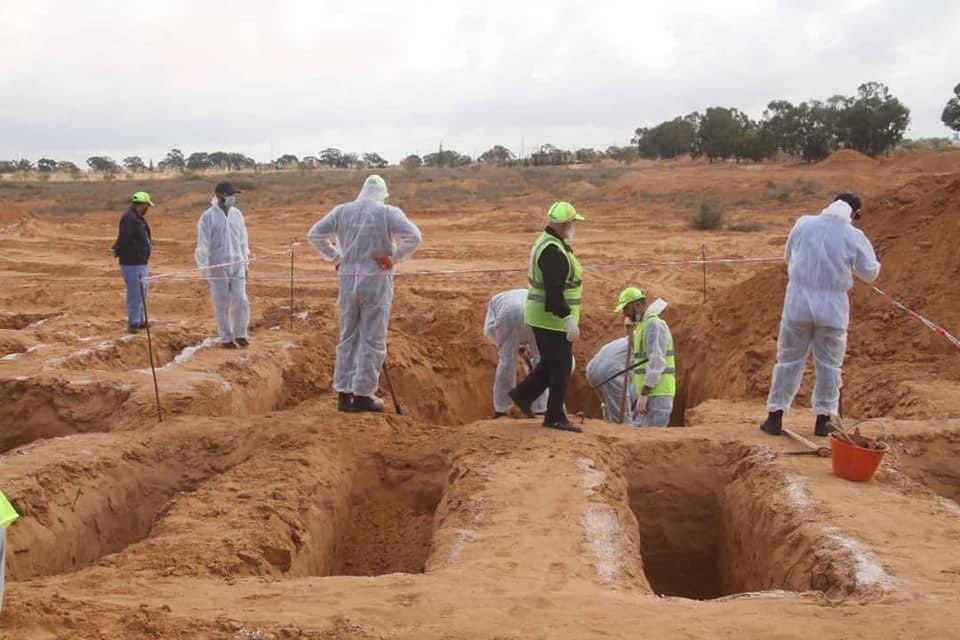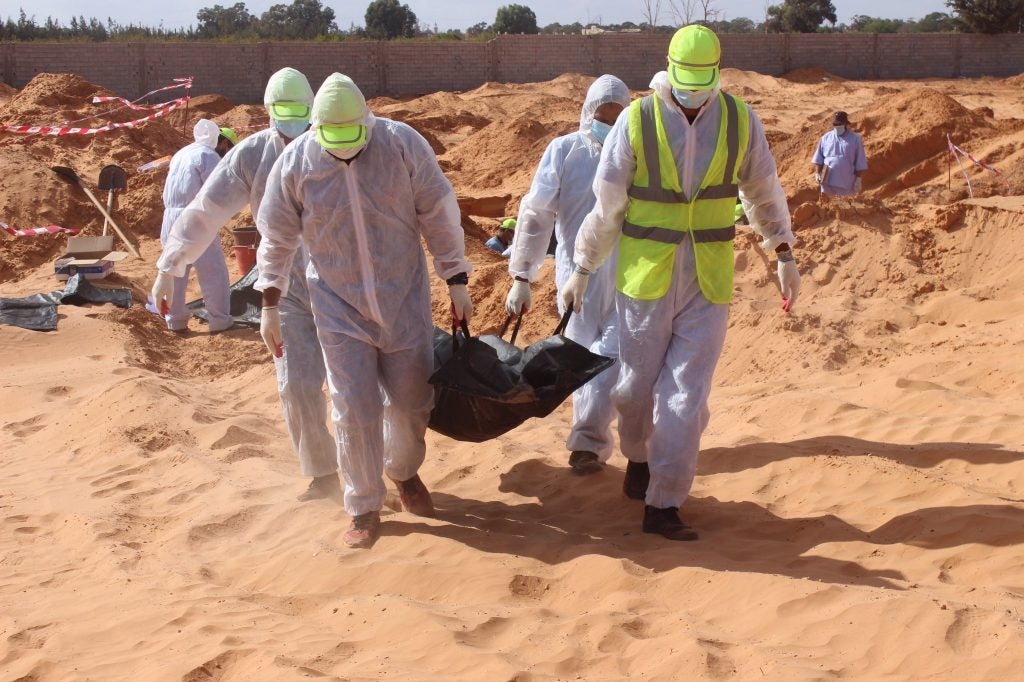Libyan Kaniyat Militia and Its Leader Sanctioned Under Global Magnitsky Act
The US Department of the Treasury’s Office of Foreign Assets Control announced that it had imposed sanctions on Mohamed al-Kani, leader of the Libyan Kaniyat militia, and the militia itself on November 25. They were designated pursuant to Executive Order (E.O.) 13818, which builds upon and implements the Global Magnitsky Human Rights Accountability Act.
The sanctions were imposed over the pro-LNA militia’s extrajudicial killings of civilians and their subsequent burial in mass graves in and around the militia’s former stronghold of Tarhuna, as well as the torture, forced disappearances, and displacement of civilians during their rule of the city.
In the Treasury Department’s press statement announcing the sanctions, Secretary Steven T. Mnuchin said:
“Mohamed al-Kani and the Kaniyat militia have tortured and killed civilians during a cruel campaign of oppression in Libya.
The United States stands with the Libyan people and will use the tools and authorities at its disposal to target human rights abusers in Libya and across the world.”

The Global Magnitsky Act sanctions on Mohamed al-Kani and the Kaniyat militia come a week after the United Nations Libya sanctions committee was unable to impose an asset freeze and travel ban on them due to Russian opposition. The 15-member committee requires consensus to approve sanctions, but Russia demanded “irrefutable evidence” of extrajudicial killings of civilians before approving the US-German joint proposal. In the State Department press statement announcing the Global Magnitsky Act sanctions, Secretary of State Mike Pompeo said that he was “deeply disappointed” by the Russian move to block the proposal, describing it as “intransigence”.
The sanctions, effective from the date of the announcement, mean that all property and interests in property of Mohamed al-Kani or the Kaniyat militia, and of any entities that are owned, directly or indirectly, 50 percent or more by them, individually, or with other blocked persons, that are in the United States or in the possession or control of U.S. persons, are blocked and must be reported to the Office of Foreign Assets Control.
The designations are not the only legal actions being taken against LNA forces or their leader, Khalifa Haftar. Multiple Libyan families in the US have filed civil lawsuits against Haftar for his involvement in alleged war crimes. The lawsuits are based on the premise that Haftar’s US citizenship and property holdings in the US make him subject to US jurisdiction over war crimes committed by his forces in Libya. They intend to recover financial damages from said property holdings under the Torture Victim Protection Act of 1991.

